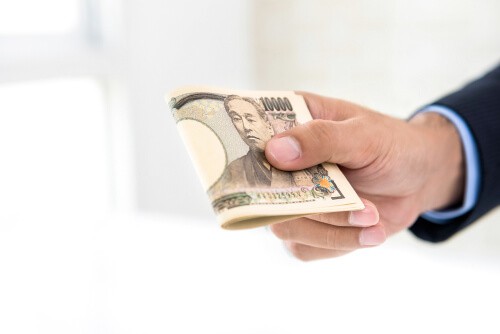Every country has its own unspoken rules and customs. Just like that, tipping in Japan is considered rude – read on to find out why!
Uncover the cultural reasons behind Japan’s no-tipping policy with our guide. Learn why offering a tip can be seen as rude, and how to show appreciation in ways that align with Japanese customs. Embrace a deeper understanding of Japan’s unique approach to hospitality and service.
Page Contents
Tipping In Japan
General Rule: No Tipping Expected in Japan
In the intricate tapestry of Japanese culture, the notion of tipping stands out as an anomaly. Unlike Western countries where tipping is customary, Japan operates on a different wavelength.
Tipping is generally not expected and, in some instances, can be perceived as an affront. The reason lies in the unique approach to service; in Japan, service staff are well-compensated, and providing exceptional service is an integral part of their professional ethos.

Service providers take pride in delivering impeccable service as a matter of duty, and tipping can be misconstrued as a suggestion that they require additional incentive to perform their job well.

To avoid unintentionally causing offense, it is crucial for travelers to understand that, in Japan, the quality of service is inherent to the job, and tipping may be seen as condescending or rude.
Why Is Tipping Rude In Japan?
Tipping in Japan can be considered rude because it suggests that the excellent service provided is not already valued and compensated for in the price. Japanese culture emphasizes professionalism and dedication to duty, so offering a tip can imply doubt in their commitment to providing exceptional service.
Additionally, fair wages are the norm in Japan, eliminating the need for gratuities. Remember, showing appreciation through verbal thanks and polite behavior is always appreciated!
Exceptions to the Rule of Tipping in Japan
Tipping Is Accepted at Traditional Ryokans
Amid the landscape of Japan’s no-tipping culture, traditional ryokans stand as a unique exception. These establishments, where personalized service is a hallmark, often employ personal attendants known as nakay-san.
These attendants ensure guests experience a seamless and comfortable stay. In such instances, a discreet tip serves as a token of appreciation.
The recommended tip amount per person for nakay-san is approximately ¥1,000, acknowledging the dedicated service provided.
To execute this with cultural sensitivity, presenting the tip in a discreet envelope with a slight bow adds a touch of grace to the gesture, recognizing the effort that goes beyond the standard service expectations.
Your Tour Guides Will Definitely Appreciate a Tip
Tour guides in Japan, frequently working as freelancers, may rely on gratuities as a significant part of their income. While tipping remains an exception rather than the rule, it becomes more acceptable in scenarios where the guide operates independently.
For half-day tours, a tip ranging from ¥500 to $1,000 per person is generally acceptable, with the amount contingent on the length and quality of the tour.
The key to navigating this exception lies in discretion. Tipping should be a private affair, and expressing gratitude for the personalized experience enhances the cultural exchange between travelers and guides.
Tipping Is Accepted For Special Services in Japan
In certain unique situations, such as private karaoke rooms or geisha performances, a token of appreciation might be deemed appropriate. However, caution is advised, and travelers are encouraged to exercise prudence in tipping, avoiding excessive amounts.
Consulting with local sources or guides for guidance on appropriate tipping amounts in such situations can help travelers navigate these cultural nuances.
How To Tip (If You Choose To) In Japan?
(i) Amount:
Tipping in Japan, when deemed appropriate, should be viewed as a gesture of gratitude rather than an obligation. It is imperative to adhere to recommended tip amounts for specific scenarios, ensuring that the tip is proportional to the service provided. The goal is to express appreciation without undermining the professionalism of the service staff.
(ii) Method:
The manner in which a tip is presented is as important as the amount itself. Utilizing a discreet envelope and offering the tip with a slight bow enhances the cultural sensitivity of the gesture. This not only demonstrates respect for the recipient but also showcases an understanding of Japanese customs and etiquette.
(iii) Etiquette:
Cultural sensitivity takes center stage when tipping in Japan. Travelers must gauge the situation and ensure that the act of tipping does not cause discomfort to the recipient. Striking a balance between expressing gratitude and respecting local norms is the key to a successful tipping experience.
Alternatives to Tipping in Japan
While tipping might be the norm in some cultures, Japan offers alternative ways to express appreciation:
- Expressing Sincere Gratitude Verbally and Bowing Politely
A heartfelt thank-you, accompanied by a respectful bow, can convey appreciation without the need for monetary gestures. This traditional gesture aligns with Japanese customs and showcases a genuine acknowledgment of the service provided.
- Leaving Positive Online Reviews
In the digital age, expressing gratitude has taken a modern twist. Leaving positive online reviews for exceptional service not only benefits the service provider but also helps fellow travelers make informed decisions. This method of acknowledgment aligns with contemporary trends while contributing to the service provider’s reputation.
- Following Proper Restaurant/Bar Etiquette
Being a considerate customer goes a long way in expressing appreciation. Adhering to local customs, cleaning up after oneself, and respecting the establishment’s rules are subtle yet effective ways to show gratitude. By being mindful of cultural nuances, travelers contribute to a positive and respectful exchange.
Conclusion
In navigating Japan’s nuanced tipping culture, understanding exceptions and practicing cultural sensitivity is key. Embrace Japanese customs, enjoy exceptional service, and contribute to harmonious cultural exchange. Tipping, a thoughtful gesture, is just one way to express gratitude. Every interaction becomes an opportunity for mutual understanding in this captivating destination.
Also Read:





